SCIENCE- BACKED
PROVEN PERFORMANCE

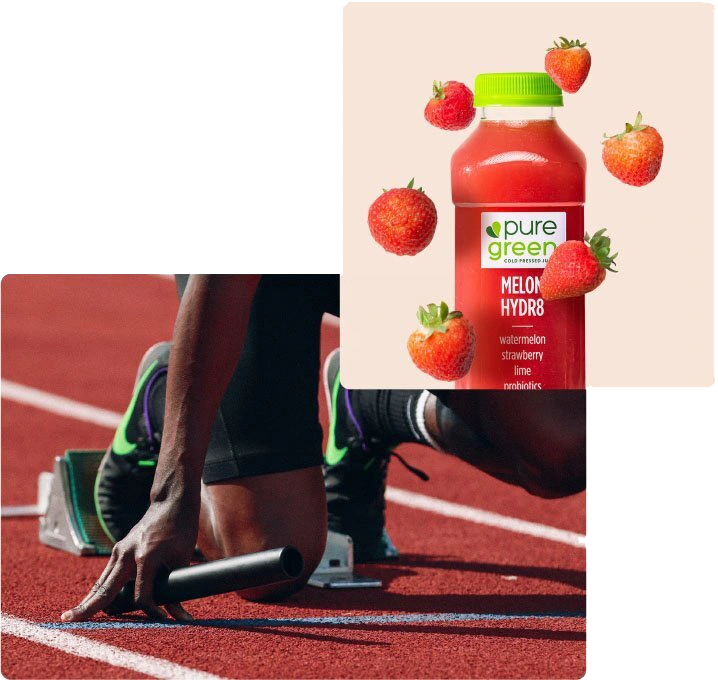
A WELL-BALANCED DIET IS PARAMOUNT FOR PERFORMING AT A HIGH LEVEL
Winning results do not happen overnight; it takes dedication, commitment, and a constant practice of the fundamentals required to put one in the best possible position to succeed in whatever task one is doing. Proper nutrition with a “food-first” approach is a part of the fundamentals that helps support excellent outcomes. Preparation is another crucial aspect that supports great results. Nutrition and preparation go hand-in-hand. Pure Green’s cold-pressed juices and smoothies have what it takes to maintain a well-balanced diet, provide one with the key nutrients to power through each day, and help one be at their best.
SOME OF OUR CLIENTS
SCIENCE-BACKED
SUPERFOODS
TURMERIC
/CURCUMIN
THE PRIMARY ACTIVE COMPOUND IN THE TURMERIC ROOT SUPPORTS RECOVERY AND LESSENS MUSCLE SORENESS
It is one of the more heavily researched phenolic compounds thus giving it a good deal of evidence-based support. Both long-term and high-dose curcumin consumption have been found to be safe with no reports of toxicity or side effects (1, 2). Even doses up to 12g/day for a 3-month period has been found to be safe in clinical trials (3). Curcumin has numerous health benefits due to its antioxidant and anti-inflammatory effects. Curcumin also has been shown to have positive impacts on performance and recovery in relation to sport and physical activity, largely due to its impact on lessening delayed onset muscle soreness (DOMS).
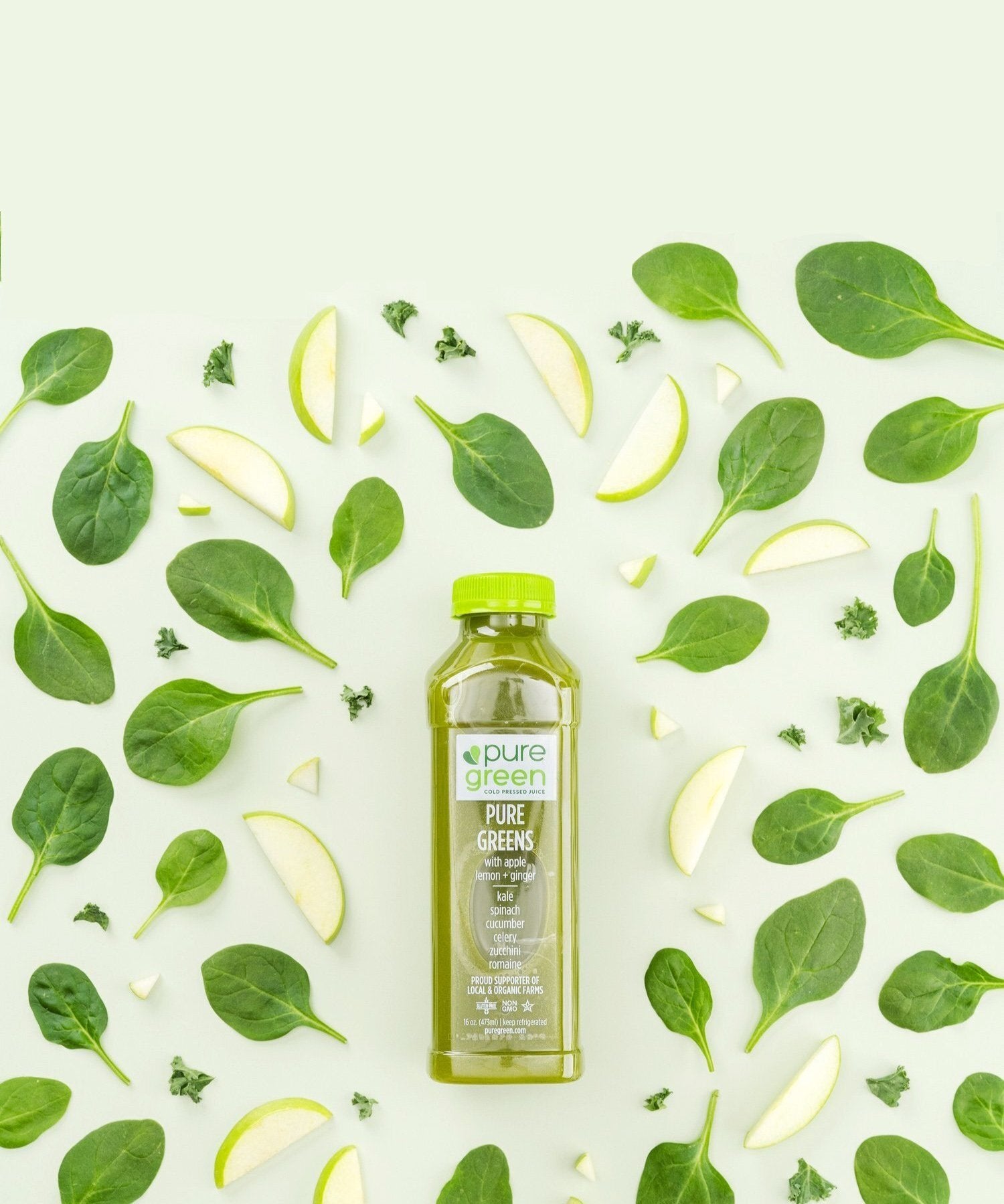
AN ANTI-INFLAMMATION VITAMIN TO SUPPORT A HEALTHY IMMUNE SYSTEM
Foods naturally rich in vitamin A (also known as retinol) include cheese, eggs, oily fish, milk, and yogurt. Individuals can also get vitamin A by including good sources of beta-carotene into their diet since our bodies convert this into retinol. Yellow, red, and orange fruits and vegetables, in addition to green leafy vegetables, set the water mark for foods that are rich with beta-carotene that can be converted into vitamin A within our bodies. These foods range from bell peppers, carrots, tomatoes, spinach, kale, broccoli, mango, papaya, and pineapple. Most individuals who eat a balanced diet can reach the recommended amount of vitamin A. The RDA for men is 900mcg while the RDA for women is 700mcg.
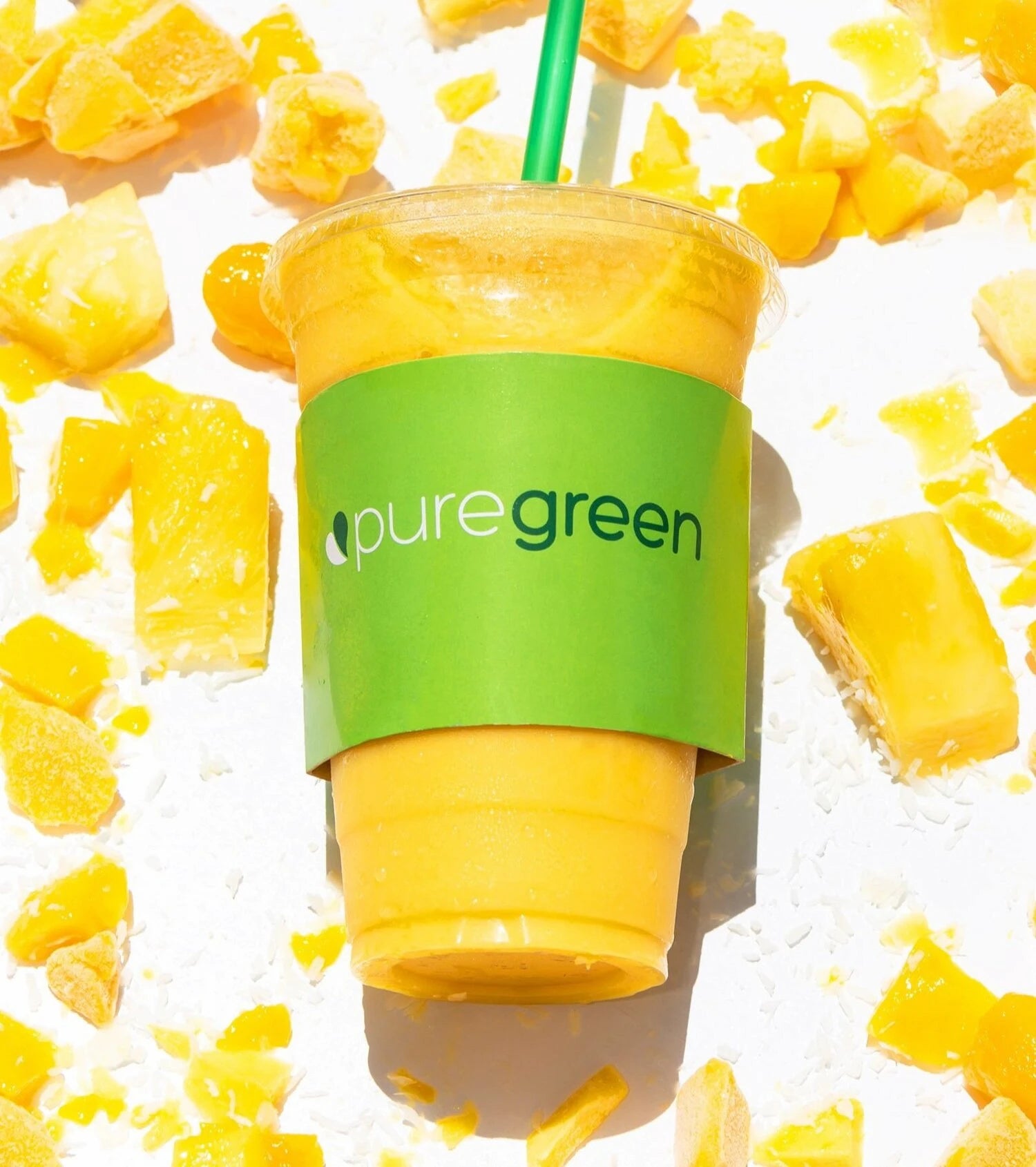
GINGEROL CAN AID DIGESTION, RELIEVE NAUSEA, AND HELP MAINTAIN YOUR IMMUNE SYSTEM
Ginger originates from Southeast Asia and provides many health benefits. The main active compound in ginger is called gingerol. Evidence shows that gingerol can aid digestion, relieve nausea, and help maintain your immune system by combating the flu and common cold. Gingerol also acts as an antioxidant, lending very supportive anti-inflammatory effects. If an individual is battling indigestion where pain and discomfort is felt in the upper part of the stomach, evidence has been shown that when compared to placebo, ginger can help relieve this pain by speeding up the emptying of the stomach (1).
PROMOTING REPAIR AND RECOVERY OF MUSCLE TISSUE
Bacillus coagulans GBI-30, 6086 is a probiotic that can withstand the acidic environment of the stomach allowing it to travel to the intestines where it has been shown to aid in the digestion of carbohydrates and protein (1). The ability to increase protein absorption is key in promoting repair and recovery of muscle tissue as essential amino acids (EAAs), particularly leucine greatly upregulates muscle protein synthesis. GBI-30, 60686 has been shown to “increase EAA absorption, including leucine absorption by 20%” (2). Given this fact, researchers have also shown that taking GB1-30 6086 with protein post-workout can enhance the recovery process from a strenuous workout and even improve performance (3).
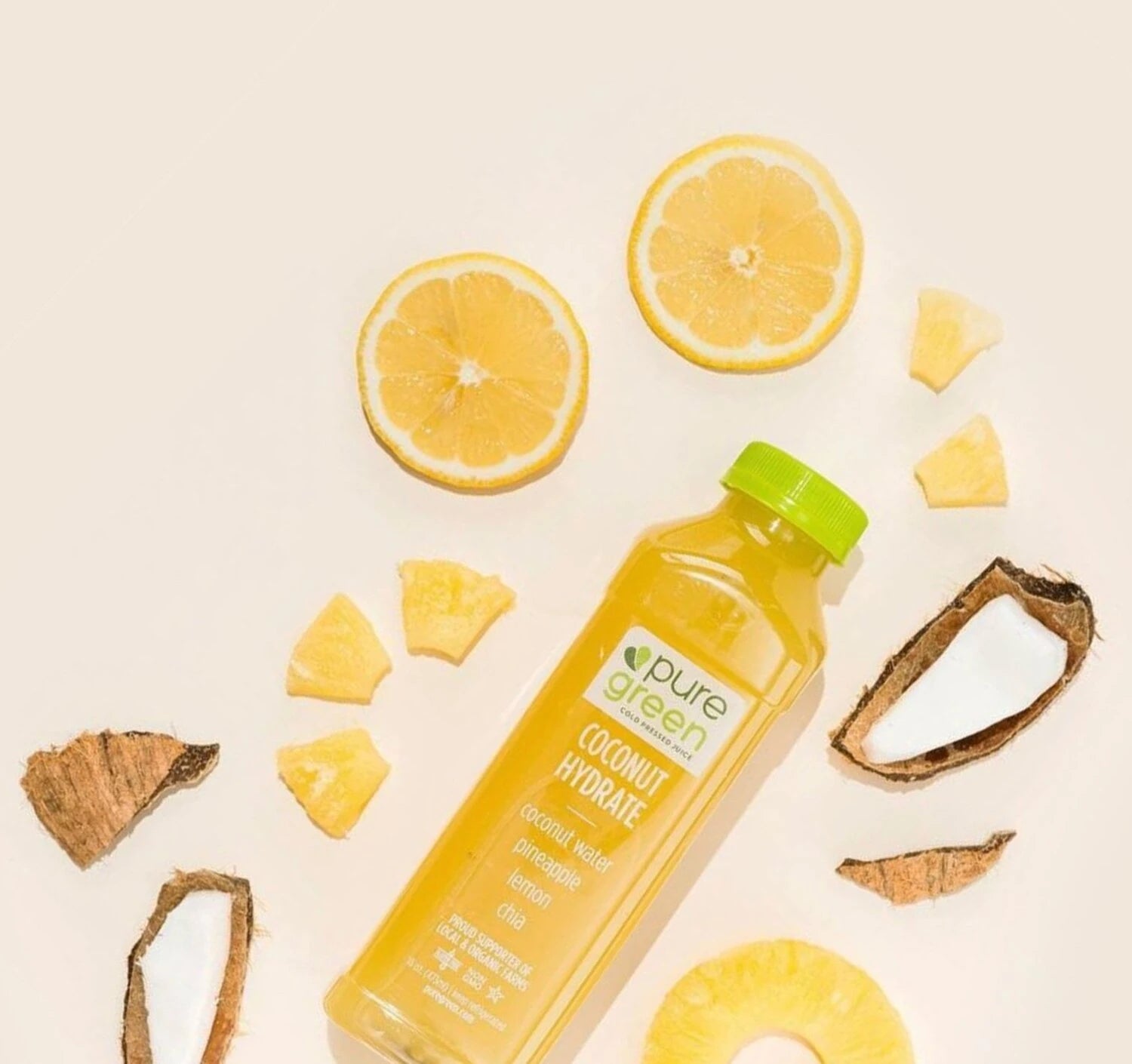
AN ESSENTIAL VITAMIN THAT SUPPORTS THE IMMUNE SYSTEM
Vitamin C or ascorbic acid is an essential vitamin that supports the immune system by doing things like ensuring adequate natural killer (NK) cell functions. Besides supporting the immune system and potentially shortening the duration of common cold symptoms (1), vitamin C also supports healthy joints by assisting with collagen synthesis (2). By ensuring collagen matrixes are strong, vitamin C supports healthy and strong tendon and ligaments. Previous research has demonstrated that 48 mg of vitamin C consumed with gelatin before physical activity augments collagen synthesis (3).
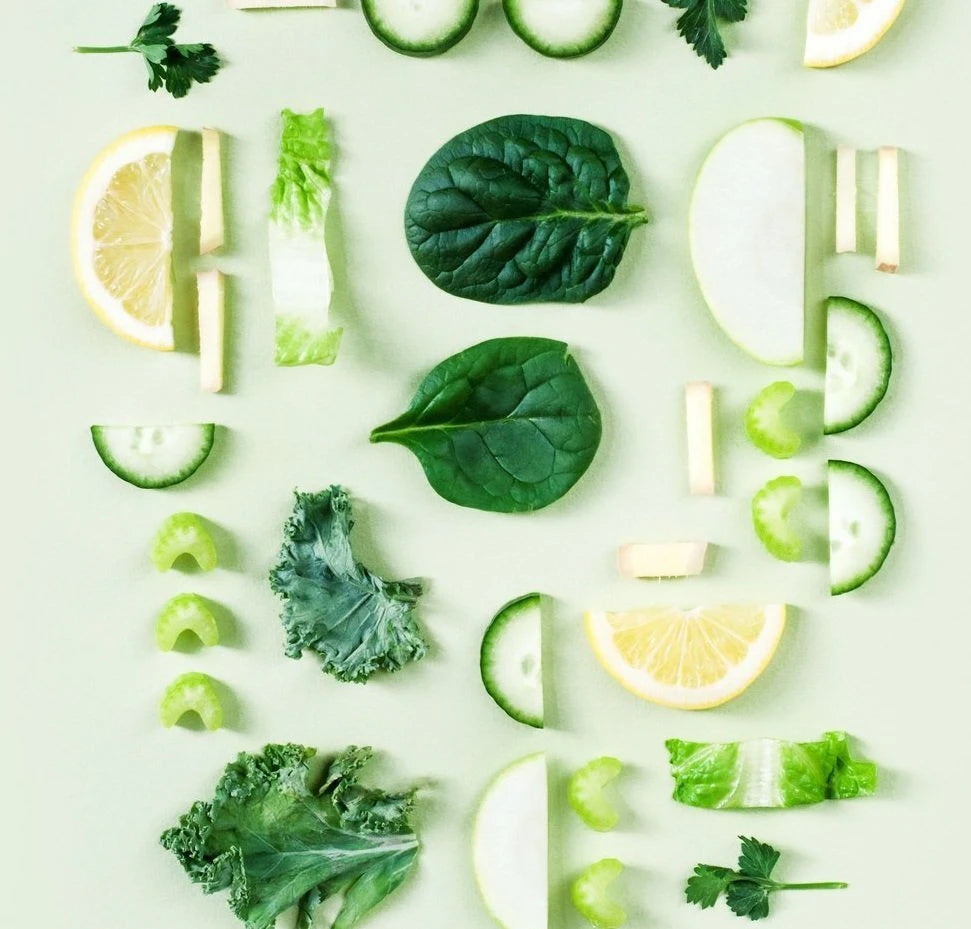
SHOWN TO INCREASE CARDIAC OUTPUT
Vitamin K may not get as much attention as other A through E vitamins, but it plays a key role in assisting other nutrients so they can do their job. Vitamin K supplementation has been shown to improve bone mineral metabolism in female athletes by increasing the effectiveness of calcium (1). But vitamin K doesn’t just impact bone health, it is essential for blood clotting and it keeps your blood vessels healthy by aiding in the prevention of arterial calcification (2).
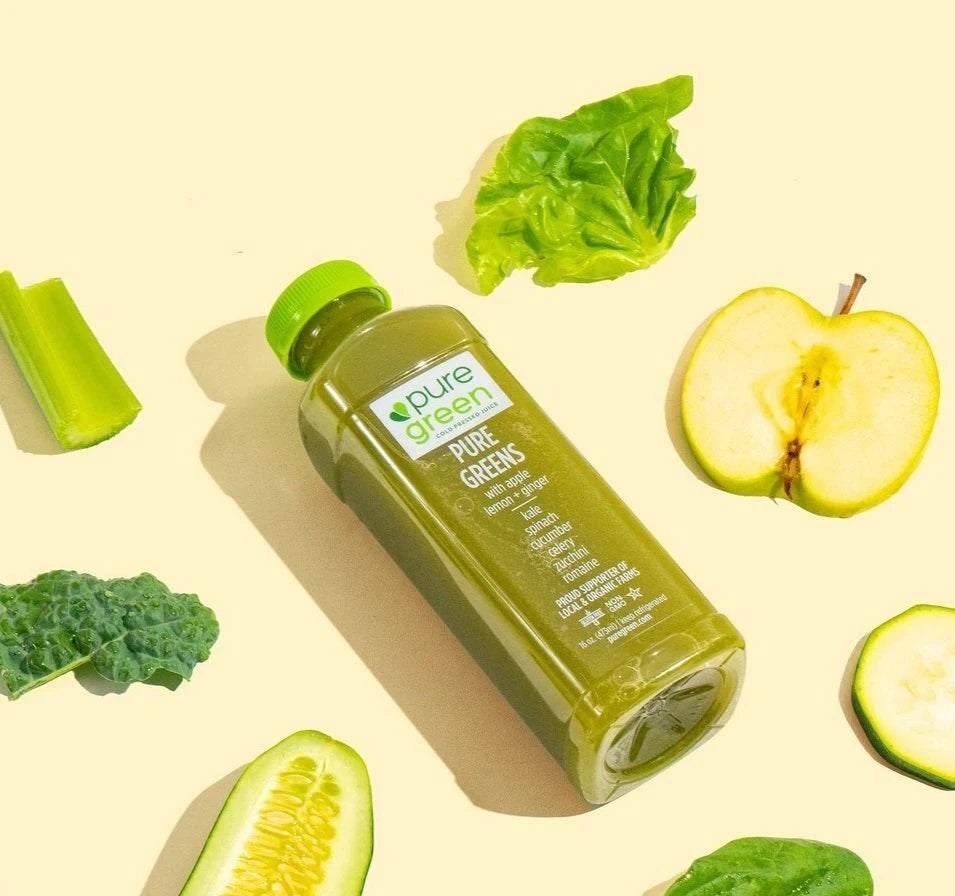
PLAYING A VITAL ROLE IN THE BODY’S OXYGEN CARRYING CAPACITY
When it comes to performance and your immune system, iron is one of the most important minerals for athletes to consider. As a component of hemoglobin, the red blood cell protein that transports oxygen from the lungs to tissues and cells, iron plays a vital role in the body’s oxygen carrying capacity (1). This makes oxygen available to working muscles. If an athlete has an iron deficiency, it can affect their endurance, immune system, and even affect their performance.
PROVEN TO IMPROVE ENDURANCE EXERCISE PERFORMANCE
Athletes are always looking for a competitive edge to help them excel in their sport. One of those edges that has been heralded with multiple performance benefits has been dietary nitrate supplementation in the form of beetroot juice (3). The body’s ability to convert nitrates from beets into nitric oxide has been shown to enhance vasodilation of blood vessels and therefore improve endurance exercise performance (1, 2, 3). It has been shown that with the increase in blood flow and oxygen transport from beetroot juice ingestion, it can result in a 15-25% increase in time to exhaustion during severe-intensity, consistent work rate exercise (2).
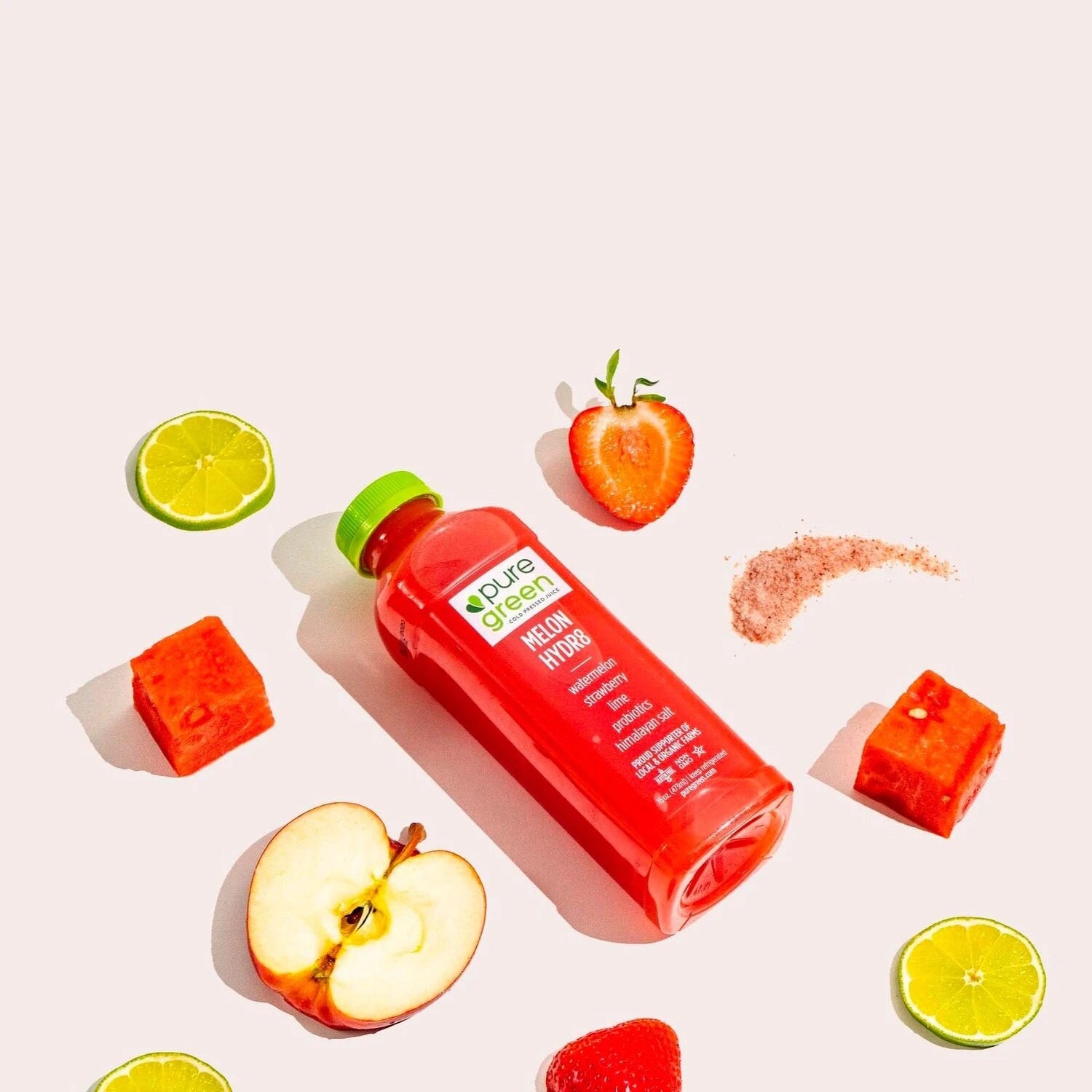
REDUCE MUSCLE SORENESS, DECREASE PERCEIVED EXERTION, AND IMPROVE RECOVERY
Magnesium is an important mineral found in many food sources such as chicken, beef, yogurt, peanut butter, almonds, and beans. Like many minerals, which are essential to life processes, magnesium is essential for optimal health and performance. Inadequate magnesium intake has been associated with chronic inflammation, increased cell damage, and an increase in oxidative stress (1). Consuming magnesium-rich foods has been shown to help reduce muscle soreness, decrease perceived exertion, and improve feelings in recovery (1).
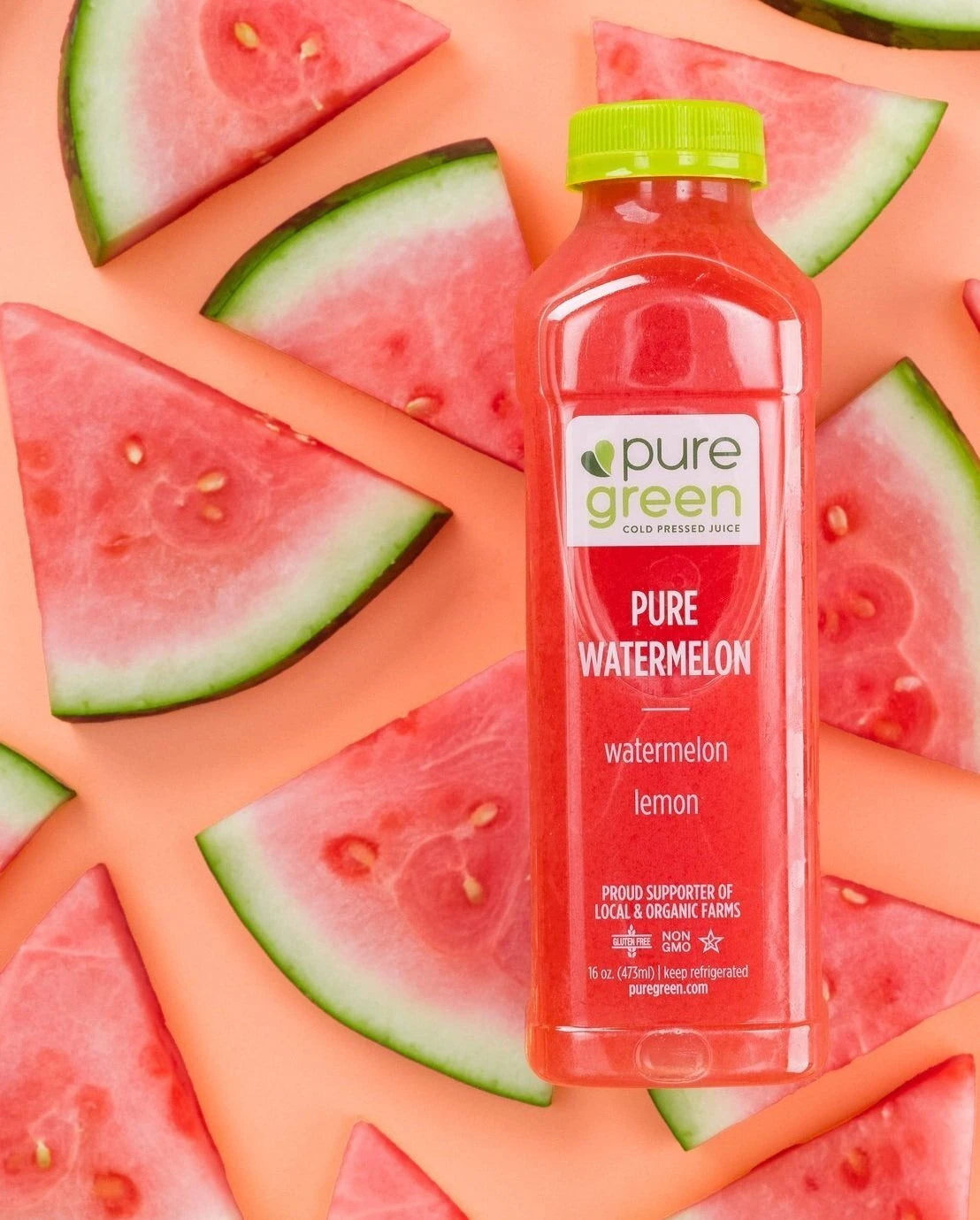
INCREASED PERFORMANCE OF HIGH INTENSITY STRENGTH AND POWER TASKS
L-citrulline is a non-essential amino acid found primarily in watermelon that has been shown to increase arginine, the primary substrate for nitric oxide. An increase in nitric oxide can help vasodilate blood vessels which increases blood flow throughout the body (1). There are numerous benefits of consuming citrulline which can encompass not only athletic performance, but also general health.
PRIMARY AND SECONDARY PREVENTION OF CARDIOVASCULAR DISEASE
Alpha-Linolenic Acid (ALA) is an essential omega-3 fatty acid. When we think of omega-3 fatty acids, we oftentimes think of the omega-3 fatty acids (EPA and DHA) that are commonly found in fish and other seafood. While ALA is an omega-3 fatty acid, it is not found in fish and other seafood but found primarily in plants, oils, and nuts and oftentimes doesn’t get the attention it deserves.
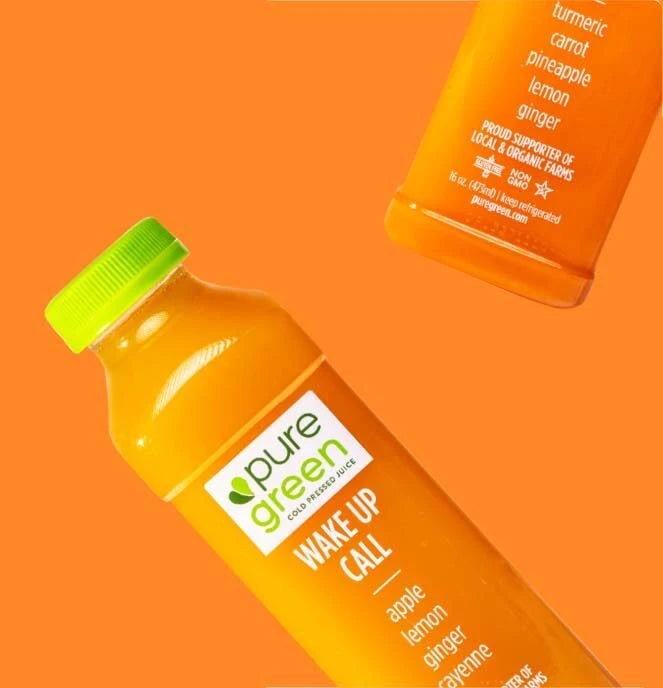
AN ESSENTIAL VITAMIN THAT SUPPORTS THE IMMUNE SYSTEM
Potassium is a mineral and electrolyte that is found in many foods and beverages including fruits, vegetables, legumes, meat, poultry, fish, potatoes, and dairy. Like many of the ingredients used in our Pure Green products, potassium has benefits for both the general consumer and those who are athletes. Consuming potassium-rich foods has been shown to lower the rates of stroke and could even help reduce the risk of coronary heart disease and cardiovascular disease (1). Since potassium serves as both a mineral and an electrolyte, we know it plays an important role in how our muscles work, and it even is a contributing electrolyte that can help our muscles become more immune to muscle cramps when ingested after being dehydrated (2).

